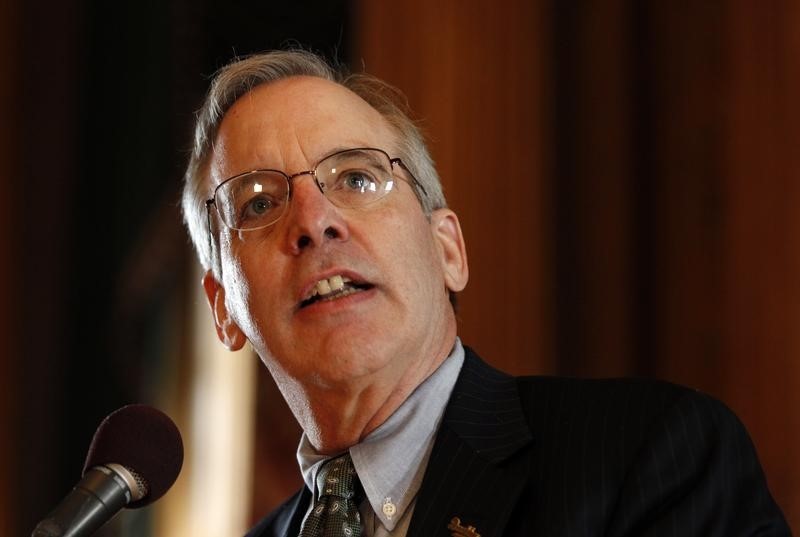(Bloomberg) -- The recent stock market slump was probably necessary for U.S. policy makers to achieve their goal of restraining the expansion, former Federal Reserve Bank of New York President William Dudley said.
“Their view is, the economy is growing at an above-trend pace, we already have a very tight labor market, we need to slow the economy,” Dudley said in a Bloomberg Television interview Thursday. “Somewhat tighter financial conditions aren’t really a bad thing. They’re probably a necessary thing for the Fed to achieve its objectives.”
The policy-setting Federal Open Market Committee voted Wednesday to raise interest rates for a ninth time in three years and published projections signaling it expects two hikes in 2019. Dudley retired in June after almost a decade as FOMC vice chair.
U.S. stocks tumbled to a 15-month low Wednesday after Fed Chairman Jerome Powell, during a press conference following the announcement, voiced confidence that a strong economy would require additional rate increases in the coming year. The S&P 500 index has fallen 16 percent from a record in September.
In his time at the New York Fed, which spanned the global financial crisis, Dudley elevated the importance of systematically incorporating changes in financial conditions into monetary policy decisions.
An index he designed while working as chief economist at Goldman Sachs Group Inc (NYSE:GS). before joining the Fed shows that conditions -- a measure which combines the stock market, credit spreads and the exchange rate -- are the tightest in about two years.
“What the Fed’s saying in their forecast is they still think -- despite the sell-off in the stock market, despite the slowdown in global growth -- that the economy is going to grow at an above-trend pace next year, and that’s why they’re continuing to tighten,” Dudley said.
“If the stock market were to keep going down, and the economy starts to weaken, then the Fed will definitely take a pause.”
The unemployment rate held in November at 3.7 percent, the lowest since 1969. Inflation last month probably pulled back slightly to 1.8 percent, just below the Fed’s 2 percent target, according to economist projections before data due Friday.
Dudley said he expects the Fed to raise rates two or three times in 2019 if officials’ forecasts for continued economic strength pan out.
“The Fed’s not there to take away the market’s pain,” Dudley said. “The Fed’s there to follow a monetary policy that best achieves its twin objectives of sustainable employment and price stability.”
